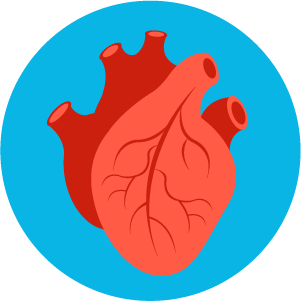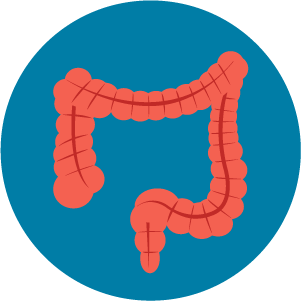“I do not like broccoli. And I haven’t liked it since I was a little kid, and my mother made me eat it. And I’m President of the United States, and I’m not going to eat any more broccoli.”
George H.W. Bush, former president of the United States, famously made his feelings known about broccoli in 1990. Reports suggest Mr. Bush even banned broccoli from Air Force One, the presidential airplane!
But maybe Mr. Bush– and millions of children around the world– should give broccoli another chance…
After all, broccoli is the “Crown Jewel of Nutrition!” (There’s an especially generous helping of calcium in broccoli. That’s why broccoli features on our list of “The Top Plant-Based Sources of Calcium.”)
Now, broccoli is a cruciferous vegetable, in the genus Brassica of the Brassicaceae family of flowering plants. Broccoli is a close relative of other green vegetables like kale, bok choy, Brussels sprouts and cabbage. In fact, the name broccoli is derived from the Italian word “broccolo” which loosely translates to “the flowering top of a cabbage.”
Keep reading to discover how much calcium broccoli provides (as well as other nutrients), the amazing health benefits of broccoli and some recipe ideas that might even change Mr. Bush’s opinion of broccoli!
How Much Calcium is in Broccoli?
We mentioned earlier that broccoli provides a generous amount of calcium. So you may be wondering;
“How much calcium is in broccoli exactly?”
Well, 100 g of broccoli (that’s roughly three large heads) provides 47 mg of calcium. But broccoli offers much more than calcium. If you remember, we also mentioned that broccoli is known as the “Crown Jewel of Nutrition.”
Broccoli earned this nickname because it contains high levels of vitamins, a healthy amount of fiber, and is low in calories.
As far as vitamins are concerned, broccoli contains particularly high levels of beta-carotene (the precursor to vitamin A) and vitamins C, and K1. Beta-carotene and vitamin C are both powerful antioxidants, while vitamin K is vital for clotting your blood should you cut yourself.
| Nutrients in Brocoli | Amount per 100 g |
| Energy | 34 kcal |
| Total Carbohydrate | 6.64 g |
| Dietary Fiber | 2.6 g |
| Sugars | 1.70 g |
| Total Fat | 0.37 g |
| Calcium | 47 mg |
| Potassium | 316 mg |
| Vitamin A (beta-carotene) | 623 IU |
| Vitamin C | 89.2 mg |
| Vitamin K | 101.6 µg |
5 Health Benefits of Broccoli
All those nutrients in broccoli provide you with some pretty amazing health benefits. Just try to remember these when you’re turning your nose up at a fork full of broccoli!
 Improves Heart Health
Improves Heart Health
As you saw earlier, broccoli belongs to the cruciferous family of vegetables. Research has shown these vegetables are particularly beneficial for your heart.
Two population-based studies carried out in Shanghai, China looked at the relationship between cruciferous vegetable consumption and cardiovascular disease mortality. (Cardiovascular disease is the broad term for diseases of the blood vessels and heart.)
One study focused on women aged 40 to 70, and the other on men aged 40 to 74. In total, there were 134,796 participants. Each participant recorded their intake of cruciferous vegetables (among all fruits and vegetables) via a dietary assessment interview and questionnaire and was placed in one of five categories based upon their daily consumption.
The women were followed up on for an average of 10.2 years, and the men for 4.6 years. There were 255 deaths by cardiovascular disease in the group of women who consumed a median of 28 grams of cruciferous vegetables a day. The number of deaths grew smaller for every category, with only 180 deaths in the group who consumed a median of 166 grams of cruciferous vegetables a day.
These results were mirrored in the male study. There were 196 deaths by cardiovascular disease in the group of men who consumed a median of 34 grams of cruciferous vegetables a day. Again, the number of deaths grew smaller for every category, with only 97 deaths in the group who consumed a median of 208 grams of cruciferous vegetables a day.
 Helps Prevent Cancer
Helps Prevent Cancer
Broccoli is an anticarcinogen? That’s what the research suggests!
Both the vitamin C and beta-carotene in broccoli are antioxidants. And antioxidants can reduce and prevent the damage free radicals cause to your cells. Free radicals are the byproduct of everyday metabolism and can be a factor in diseases like cancer, arthritis, Alzheimer’s, and heart disease.
What’s more, studies provide some evidence that human exposure to isothiocyanates through cruciferous vegetable consumption may decrease cancer risk. It’s rather complex, but cruciferous vegetables contain compounds called glucosinolates. When these compounds are broken down in water, they form other compounds including indoles and isothiocyanates. It’s the isothiocyanates that researchers think could be related to preventing cancer, although research is still not 100% conclusive.
 Aids Digestive Health
Aids Digestive Health
The fiber in broccoli is a real digestive health superstar. Perhaps the most renowned benefit of fiber is keeping you “regular.” Fiber helps keep the food you consume moving through your digestive tract without any stoppages.
But did you know dietary fiber decreases your risk for type 2 diabetes, cardiovascular disease, and colon cancer too? It’s true! See, fiber reduces the digestion and absorption of macronutrients and decreases the contact time of carcinogens in your intestinal lumen!
 Bone Health Bonus
Bone Health Bonus
As we mentioned in the nutrition section, broccoli provides a high amount of vitamin K1. Now, vitamin K1 is primarily used for blood clotting, but if you have a high enough level, your body will convert the extra vitamin K1 to vitamin K2– which is crucial for your bone health. Although getting vitamin K2 directly is best.
Vitamin K2 is responsible for activating the proteins that direct calcium around your body:
- Osteocalcin: Directs the calcium you consume to where you need it… your bones and teeth!
- Matrix Gla protein: Keeps calcium out of the places you don’t want it– your blood vessels, organs and soft tissues.
Think of these proteins as your body’s traffic signs designed specifically for calcium.
 Boosts Your Immune System
Boosts Your Immune System
You can thank the vitamin C in broccoli for yet another health benefit… boosted immune function!
See, vitamin C bolsters your immune defense by supporting a whole host of cellular functions of both the innate immune system– this system protects you from microbes entering your body– and your adaptive immune system– this system attacks any harmful pathogens that do enter your body.
A good example is your skin. Vitamin C supports epithelial barrier function against pathogens and promotes the oxidant scavenging activity of the skin. That means your skin is better prepared to keep nasty viruses passing through into your body!
Now, the recommended daily allowance for vitamin C is 90 mg for adult males, and 75 mg for adult females. And as you can see from the nutritional information chart above, 100 g of broccoli provides 89.2 mg of vitamin C… basically enough to meet the entire daily allowance for everybody!
Broccoli Recipes
If you share Mr. Bush’s distaste for broccoli, but still want to reap the health benefits of the “Crown Jewel of Nutrition,” we’ve got a great tip for you… try adding broccoli to a soup
Those childhood memories of staring down a forkful of soggy broccoli will quickly evaporate when you tuck into a bowl of these hearty soups:
The best way to cook broccoli:
If you already love broccoli and don’t need other ingredients to make it palatable, the best way to consume your broccoli is raw. Broccoli seems to be very sensitive to cooking and can actually lose some of its nutritional value when boiled or subjected to high heat.
But if you do want to cook your broccoli, steaming is your best bet. Five minutes is all it should take to lightly cook your broccoli but maintain the nutritional value.
P.S. If your experience with broccoli has been tainted by a soggy, smelly offering, it was probably boiled for too long!
Interactions and Precautions of Broccoli
For all the great benefits of cruciferous vegetables, there is a slight concern that they could be related to thyroid issues like hypothyroidism. Cruciferous vegetables contain goitrogens that affect the way your thyroid gland uses iodine.
However, you’d have to be eating an enormous quantity of broccoli, or any other cruciferous vegetable, for it to cause a thyroid issue.
If you already have a thyroid issue, it’s best to consume your cruciferous vegetables cooked and to stick to a maximum of one or two servings a day. Cooking reduces the potency of the goitrogens.
Other Calcium-Rich Foods
Broccoli didn’t get the nickname, “The Crown Jewel of Nutrition” for nothing! It provides a healthy amount of calcium and delivers in the vitamin department too. Plus, broccoli provides a wealth of health benefits to boot. Mr. Bush has been missing out all along…
If you’d like to see more calcium-rich foods, click here to find some of the best on the planet.
Or if you want to discover more about one particular food, here are some of the most popular calcium-rich foods explained:
- Algas Calcareas Marine Algae (AlgaeCal Plus)
- Almonds
- Beans
- Kale
- Figs
- Tofu


 CAD
CAD
 GBP
GBP
 USD
USD